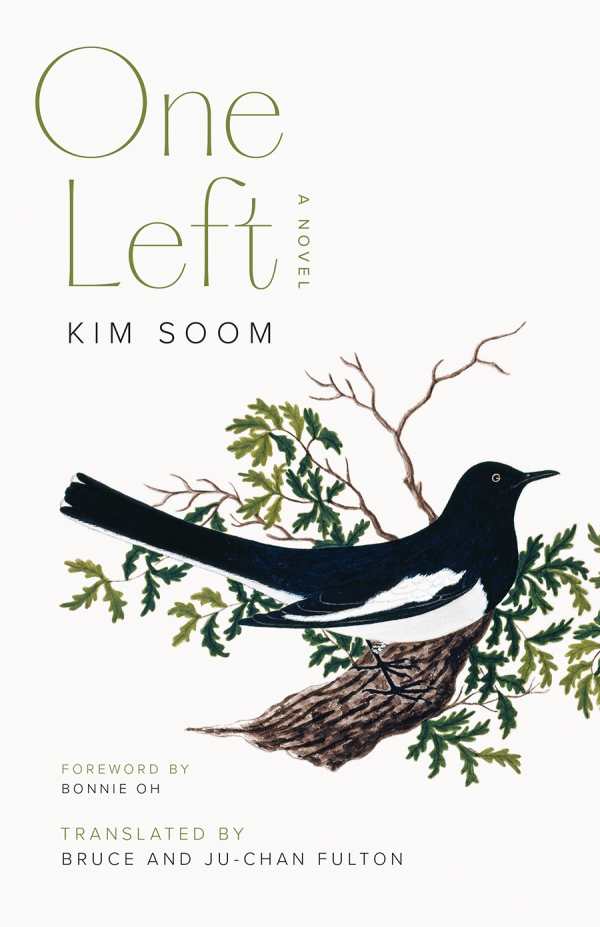One Left
In Kim Soom’s novel One Left, an elderly woman recalls her experience in a Manchurian comfort station during the Pacific War.
The main character, referred to as “she,” is taken away from her home at the age of thirteen, believing that she is going to a factory job. She spends seven years enslaved at a comfort station, then escapes just before the Soviets’ arrival. For five years, she tries to get home, never revealing to anyone where she’s been. Her brother takes her in. Later, under her nephew’s name, she occupies a house in a development that’s about to be demolished. The end of the neighborhood coincides with the end of the last known comfort woman, besides her.
The last known comfort woman’s televised demise brings the past and present together in a decisive way. The heroine’s life has been a process of undoing. Forced into sex slavery, she felt stripped of her identity and her humanity. After leaving the station, she repeats the names of her “sisters” as a mantra, a prayer of solidarity and true kinship. Confronting the purported last sister’s death means confronting the end of any link to a disturbing shared experience.
The past and present cohabit the narrative. Bold descriptions of the heroine’s past contrast with dreamy depictions of the present, like oil and water in one glass. Based on exhaustive research, her memories from the comfort station are harrowing and gruesome. There, animals are treated better than the women. The place that the heroine resides as an old woman is barren and precarious, occupied by a few lonely residents and stray, mangy animals. These act as symbolic catalysts for her final actions moving forward.
Though it is fiction, Kim Soom’s novel is steeped in fact. One Left dignifies its subjects as an authentic memorial that makes an indelible mark on history.
Reviewed by
Mari Carlson
Disclosure: This article is not an endorsement, but a review. The publisher of this book provided free copies of the book to have their book reviewed by a professional reviewer. No fee was paid by the publisher for this review. Foreword Reviews only recommends books that we love. Foreword Magazine, Inc. is disclosing this in accordance with the Federal Trade Commission’s 16 CFR, Part 255.

